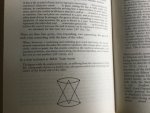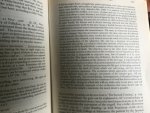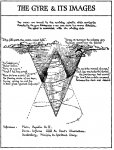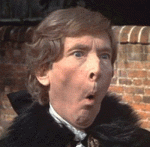You are using an out of date browser. It may not display this or other websites correctly.
You should upgrade or use an alternative browser.
You should upgrade or use an alternative browser.
Yeats
- Thread starter Corpsey
- Start date
WashYourHands
Cat Malogen
For the lazy, there was demi-semi-decent bbc bit on Yeats with Bob Geldof. More the life as biography than the art, as you might expect. Probably repugnant for most, Mr Geldof’s sartorial crimes against scarfs & cravats is hard enough to bypass throughout. Being slightly obsessed with Golden Dawn-y & occultish themes, even these weren’t given enough discussion.
From memory there were a batch, Joyce (Angelica Houston), Shaw (G Byrne), Yeats (above) and around the same time the most compelling of all on Seamus Heaney compiled by his family & friends. Available via the usual illicit platforms.
Heaney has some of my favourite lines in the English language.
From Casualty, optimally read within the entire work, but:
Dawn-sniffing revenant,
Plodder through midnight rain,
Question me again.
And from Bye-Child:
With a remote mime
Of something beyond patience,
Your gaping wordless proof
Of lunar distances
Travelled beyond love.
From memory there were a batch, Joyce (Angelica Houston), Shaw (G Byrne), Yeats (above) and around the same time the most compelling of all on Seamus Heaney compiled by his family & friends. Available via the usual illicit platforms.
Heaney has some of my favourite lines in the English language.
From Casualty, optimally read within the entire work, but:
Dawn-sniffing revenant,
Plodder through midnight rain,
Question me again.
And from Bye-Child:
With a remote mime
Of something beyond patience,
Your gaping wordless proof
Of lunar distances
Travelled beyond love.
Auden famously states, in his "In Memory of W. B. Yeats," that "poetry makes nothing happen" -- a line usually misunderstood to mean "poetry doesn't make anything happen." But Auden's construct is an active, positive one that casts "nothing" as an occurrence that takes place. Nothing in Latin is nihil, as in "annihilation"; in German, Nichts, as in Vernichtung. During the Second World War, the British Secret Service broadcast lines of poetry into occupied France. Ninety-nine percent of the these lines were meaningless; but once in every hundred signified, to the Resistance listeners who had the code-books, "Now blow up the bridge. Assassinate the general -- now." A man or woman reads a line of poetry into a microphone in London, and in France a bridge blows up -- or not. For Auden, this would be the threat all poetry, wartime or not, poses: each line, in the very recesses of its negation, harbors that potentiality, that immanence (or imminence) -- and poetry, in its eventlessness, becomes (to return to his Yeats elegy) "a way of happening, a mouth."
-- Tom McCarthy, Nothing Will Have Taken Place Except the Place
-- Tom McCarthy, Nothing Will Have Taken Place Except the Place
Corpsey
bandz ahoy
Reading my own analysis of Yeats poems on page 3 I'm smitten by my former self of April 2020.
Don't you always feel like me, that you're a different person now to what you were even four months ago?
Or perhaps some other part of you, no the quotidian self sat at his desk churning through drone work, is responsible for the literary analysis?
Don't you always feel like me, that you're a different person now to what you were even four months ago?
Or perhaps some other part of you, no the quotidian self sat at his desk churning through drone work, is responsible for the literary analysis?
Corpsey
bandz ahoy
each line, in the very recesses of its negation, harbors that potentiality, that immanence (or imminence) -- and poetry, in its eventlessness, becomes (to return to his Yeats elegy) "a way of happening, a mouth."
-- Tom McCarthy, Nothing Will Have Taken Place Except the Place
Can you translate, please?
I'm still trying to get my head around it. I think it might be "art bollocks". It sounds as though he's saying because poetry means "nothing" it has the potential to mean anything and be repurposed in such a way that it has real-world consequences, e.g. blowing up a bridge in occupied France.Can you translate, please?
WashYourHands
Cat Malogen
Brought Yeats’s Poems (Jeffares edited) to use time constructively. Struck by the notes Yeats made on Demon and Beast, p572/573, specifically his summations on gyres and the dimensions of the soul regarding objective and subjective worlds. Shit photos, this may not work

The gyre as two intersectional, geometric cones, where objective reality and subjective experience meet

It’s a Monday. You don’t encounter many perspectives like this on Mondays.


The gyre as two intersectional, geometric cones, where objective reality and subjective experience meet

It’s a Monday. You don’t encounter many perspectives like this on Mondays.
luka
Well-known member
Reading my own analysis of Yeats poems on page 3 I'm smitten by my former self of April 2020.
Don't you always feel like me, that you're a different person now to what you were even four months ago?
Or perhaps some other part of you, no the quotidian self sat at his desk churning through drone work, is responsible for the literary analysis?
I feel that very strongly.

